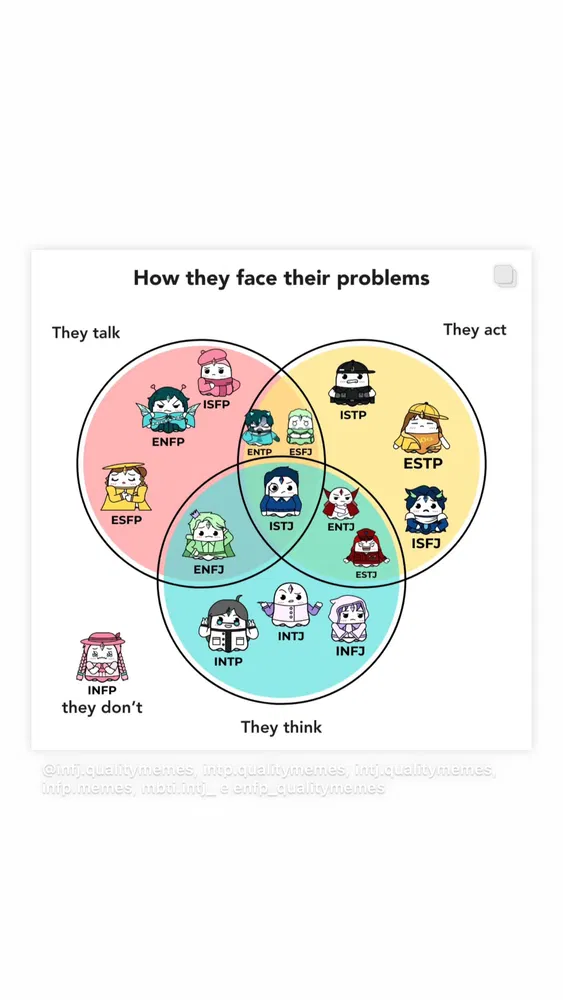We use cookies on our website for a number of purposes, including analytics, performance, and advertising. Learn more.
OK!
Boo
SIGN IN
INTJ as Grandparents: The Mastermind's Unique Touch
By Boo Last Updated: February 4, 2025
INTJs, known as the "Masterminds," are often seen as strategic, analytical, and independent individuals. These traits make them unique and fascinating figures within family dynamics. When INTJs step into the role of grandparents, their distinctive characteristics bring both challenges and strengths to the forefront. This page delves into how INTJs navigate grandparenthood, their interactions with grandchildren, and their relationships with adult children.
INTJs are known for their intellectual curiosity, strategic thinking, and a preference for solitude. They value knowledge and efficiency, often approaching life with a long-term perspective. As grandparents, INTJs may initially seem reserved or detached, but beneath this exterior lies a deep well of wisdom and a strong desire to impart valuable lessons to the younger generation. This page aims to explore the unique dynamics of INTJs as grandparents, offering insights into their strengths, challenges, and interactions within the family.
Explore the INTJ in Family Series
- Understanding INTJs as Children
- The Role of INTJs as Siblings
- Deepening Connections with an INTJ Spouse
- INTJ Parenting Style
The Mastermind's Approach to Grandparenting
INTJs bring a unique set of characteristics to their role as grandparents. Their analytical minds and strategic thinking often translate into a distinctive grandparenting style. Here are some key traits of INTJs and how they manifest in their interactions with grandchildren:
- Strategic thinkers: INTJs are known for their ability to see the big picture and plan for the future. As grandparents, they often encourage their grandchildren to think critically and consider long-term goals.
- Independent: INTJs value their independence and often encourage their grandchildren to develop self-reliance and independence as well.
- Knowledge seekers: INTJs have a thirst for knowledge and enjoy sharing their insights with others. They may engage their grandchildren in intellectual discussions and foster a love of learning.
- Reserved: While INTJs may not be overly affectionate, their love is shown through their actions and the time they invest in their grandchildren.
- Problem solvers: INTJs excel at finding solutions to complex problems. They often offer practical advice and help their grandchildren navigate challenges.
Navigating emotional connections
While INTJs have many strengths, they may face challenges in forming emotional connections with their grandchildren. Here are some common challenges they might encounter:
- Emotional detachment: INTJs may struggle to express their emotions openly, which can make it difficult for their grandchildren to feel emotionally connected.
- High expectations: INTJs often have high standards and may unintentionally place pressure on their grandchildren to meet these expectations.
- Preference for solitude: INTJs value their alone time and may need to find a balance between spending time with their grandchildren and maintaining their own space.
- Difficulty with small talk: INTJs prefer deep, meaningful conversations and may find it challenging to engage in casual, light-hearted interactions with their grandchildren.
- Misunderstood intentions: INTJs' reserved nature can sometimes be misinterpreted as disinterest or aloofness, which can affect their relationships with family members.
The unique strengths they bring
Despite the challenges, INTJs bring many strengths to their role as grandparents. Here are some of the unique qualities they offer:
- Wisdom and knowledge: INTJs have a wealth of knowledge and enjoy sharing their insights with their grandchildren. This can foster a love of learning and intellectual curiosity.
- Problem-solving skills: INTJs excel at finding solutions to complex problems. They can offer practical advice and help their grandchildren navigate challenges.
- Long-term perspective: INTJs think strategically and can help their grandchildren set and achieve long-term goals.
- Encouragement of independence: INTJs value self-reliance and encourage their grandchildren to develop independence and critical thinking skills.
- Dedication and commitment: INTJs are deeply committed to their families and will invest time and effort into nurturing their grandchildren's growth and development.
Navigating Relationships with Adult Children
INTJs often take a strategic approach to their relationships with their adult children. Here are some ways they navigate these relationships:
- Supporting their children's parenting: INTJs offer practical advice and support to their adult children, helping them navigate the challenges of parenthood.
- Conflict resolution: INTJs approach conflicts with a logical and analytical mindset, seeking to find practical solutions and maintain harmony within the family.
- Emotional support: While INTJs may not be overly expressive, they provide a steady and reliable source of support for their adult children.
FAQs
How do INTJs show their love as grandparents?
INTJs show their love through actions rather than words. They invest time and effort into nurturing their grandchildren's growth and development, often sharing their knowledge and wisdom.
What challenges might INTJ grandparents face in connecting with their grandchildren?
INTJ grandparents may struggle with emotional detachment, high expectations, and a preference for solitude, which can make it difficult to form emotional connections with their grandchildren.
How can INTJs balance their need for solitude with spending time with their grandchildren?
INTJs can balance their need for solitude by setting boundaries and scheduling dedicated time for both alone time and family interactions. This allows them to recharge while still being present for their grandchildren.
What strengths do INTJ grandparents bring to their family?
INTJ grandparents bring wisdom, problem-solving skills, a long-term perspective, encouragement of independence, and dedication to their families. These strengths can greatly benefit their grandchildren's growth and development.
How do INTJs handle conflicts with their adult children?
INTJs approach conflicts with a logical and analytical mindset, seeking practical solutions and maintaining harmony within the family. They offer practical advice and support to help resolve issues.
Conclusion
INTJ grandparents bring a unique blend of wisdom, strategic thinking, and dedication to their families. While they may face challenges in forming emotional connections, their strengths in problem-solving, knowledge sharing, and long-term planning can greatly benefit their grandchildren. Understanding and appreciating the unique dynamics of INTJ grandparenting can foster stronger family relationships and create a nurturing environment for the younger generation.
MEET NEW PEOPLE
JOIN NOW
50,000,000+ DOWNLOADS
INTJ People and Characters
Universes
Personalities
Meet New People
50,000,000+ DOWNLOADS
JOIN NOW






















































